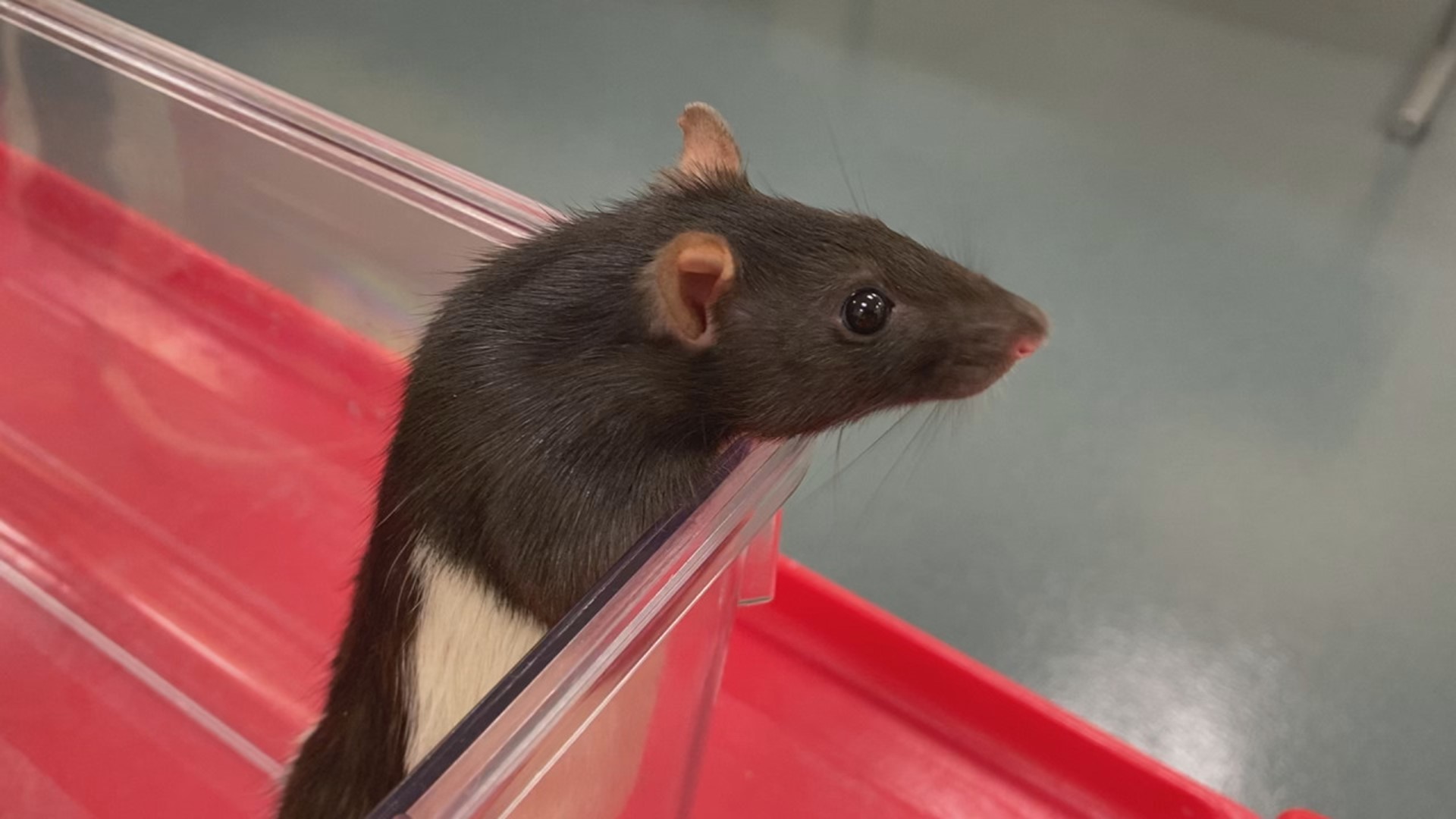LANCASTER COUNTY, Pa. — Twelve Long-Evans rats from Millersville University in Lancaster County are looking for a new home after previously being subjects in a behavioral study course during the 2023 spring semester. The rats can be adopted at no charge, but adopters must submit an adoption application.
Associate Professor at Millersville University, Kelly Banna, says rats can make for great pets for any age.
“I’ve had a number of families with very young children that have adopted rats, it seems to go very well. Children love them," he told FOX43.
There were originally 16 rats in the lab group, but four have since been adopted. Students would train the rats using three procedures: Habituation, Magazine training, and Shaping.
Once trained, students would use the rats to collect scientific data by documenting their behavior during experimental sessions. The sessions would sometimes involve the rats performing physical acts such as moving an object to retrieve a treat.
“They’re used to being handled every day by undergraduate students; they’re used to having to do things in order to earn little treats,” Banna explained.
Because of their socialization with other rats, Banna hopes multiple rats will be adopted together. However, if this is not possible for potential adopters, it's recommended to have other rats at home. This will help the Millersville rats get acclimated to their new environment faster and potentially be trained sooner.
“We’re trying to adopt them out in pairs ideally because they have a history, they’ve been socialized to each other,” Banna explained.
Aside from socialization, rats are also habitual to playtime and exploration. It’s recommended they are let out of their cage once a day for at least an hour to ensure they get proper exercise. Playtime with other rats is also important as it can deter scurrying later while in their cage.
“If they live alone and don’t have much interaction, they don’t have an exciting place to play, then they just kind of languish and it’s not good for their emotional, physical, or mental health,” Banna said.
Rats can also be trained like other house pets, such as dogs and cats. They can respond to name-calling and can be litter trained. However, it is recommended to not house rats with any animal larger than themselves, as this could cause stress and other physical health risks.
“They just learn to respond to the consequences of their environments like the rest of us do,” Banna said.
Rats are also nocturnal animals, meaning they become more active at night or while in the dark. First-time adopters should be aware the rats will make noise while in their cage. Banna, therefore, recommends the cages be kept outside a person’s bedroom to minimize the risk of staying awake.
Banna also noted how all the rats available are female but are not spayed and will require regular veterinary services.

